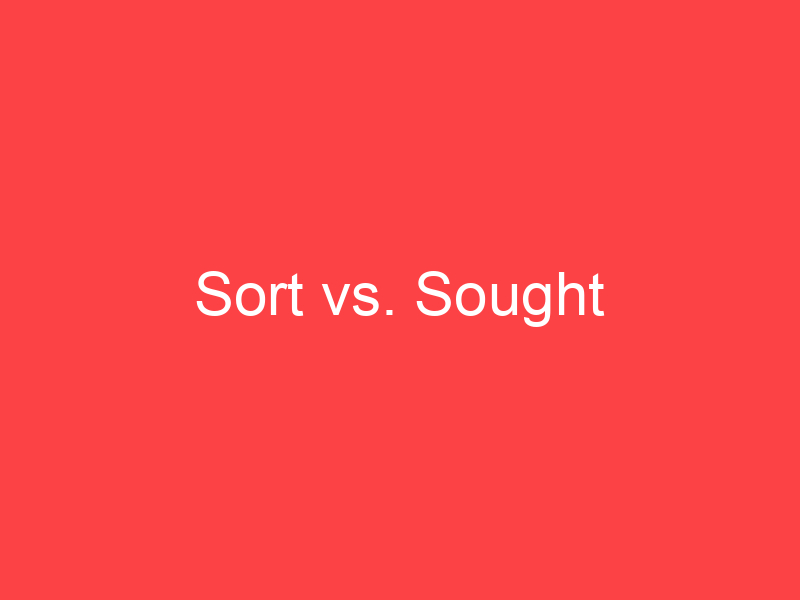-
Sort (noun)
A general type.
-
Sort (noun)
Manner; form of being or acting.
-
Sort (noun)
Condition above the vulgar; rank.
-
Sort (noun)
A person evaluated in a certain way (bad, good, strange, etc.).
-
Sort (noun)
Group, company.
-
Sort (noun)
A good-looking woman.
-
Sort (noun)
An act of sorting.
“I had a sort of my cupboard.”
-
Sort (noun)
An algorithm for sorting a list of items into a particular sequence.
“Popular algorithms for sorts include quicksort and heapsort.”
-
Sort (noun)
A piece of metal type used to print one letter, character, or symbol in a particular size and style.
-
Sort (noun)
A type.
-
Sort (noun)
Chance; lot; destiny.
-
Sort (noun)
A full set of anything, such as a pair of shoes, or a suit of clothes.Samuel Johnson, “A Dictionary of the English Language”, [https://books.google.com/books?id=03Q7AAAAcAAJ] publisher=W. G. Jones year=1768
-
Sort (verb)
To criteria that determine their sorts.
“Sort the letters in those bags into a separate pile for each language that you recognise; sort the rest into a common pile for later attention.”
-
Sort (verb)
To arrange into some sequence, usually numerically, alphabetically or chronologically.
“Sort those bells into a row in ascending sequence of pitch: lowest tones on the left; highest on the right.”
-
Sort (verb)
To conjoin; to put together in distribution; to class.
-
Sort (verb)
To conform; to adapt; to accommodate.
-
Sort (verb)
To choose from a number; to select; to cull.
-
Sort (verb)
To join or associate with others, especially with others of the same kind or species; to agree.
-
Sort (verb)
To suit; to fit; to be in accord; to harmonize.
-
Sort (verb)
To fix a problem or handle a task; to sort out.
-
Sought (verb)
simple past tense and past participle of seek

